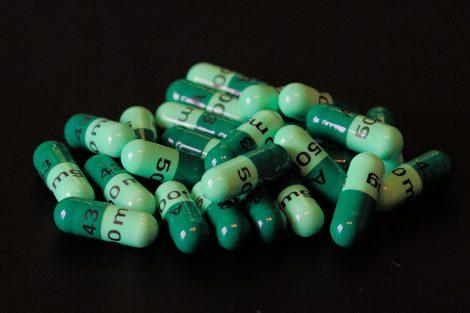Although patients have been told for decades that it’s imperative for them to take a full course of antibiotics, a recent BMJ analysis suggested that the practice may be dangerous to patients and to society as a whole because overuse of antibiotics has contributed to the rise of antibiotic-resistant infections. But experts at Harvard T.H. Chan School of Public Health say it’s too soon to drop the advice.
In a July 27, 2017 Washington Post article, Harvard Chan School’s Sarah Fortune and Yonatan Grad, commenting on the BMJ article, said that while shorter courses of antibiotics may be OK in some cases, they’re not safe overall.
For instance, studies have shown that one day of antibiotics is often enough for those with urinary tract infections or typhoid fever, but not enough for tuberculosis patients, who risk getting sicker if they stop antibiotics early, said Fortune, professor of immunology and infectious diseases at Harvard Chan School. For some infections, treating for too short a time may make it easier for antibiotic-resistant organisms to take hold, making the infection harder or even impossible to treat.
And Yonatan Grad, assistant professor of immunology and infectious diseases, questioned the idea of telling people to stop taking antibiotics when they “feel better”—one option discussed in the BMJ article.
“How are you to judge ‘feeling better’? Symptoms mostly gone? Entirely gone? Some symptoms, but not others?” He said the advice is “too vague and subjective.”
Read the Washington Post article: New debate on antibiotics: Do you really need to take the full course?
